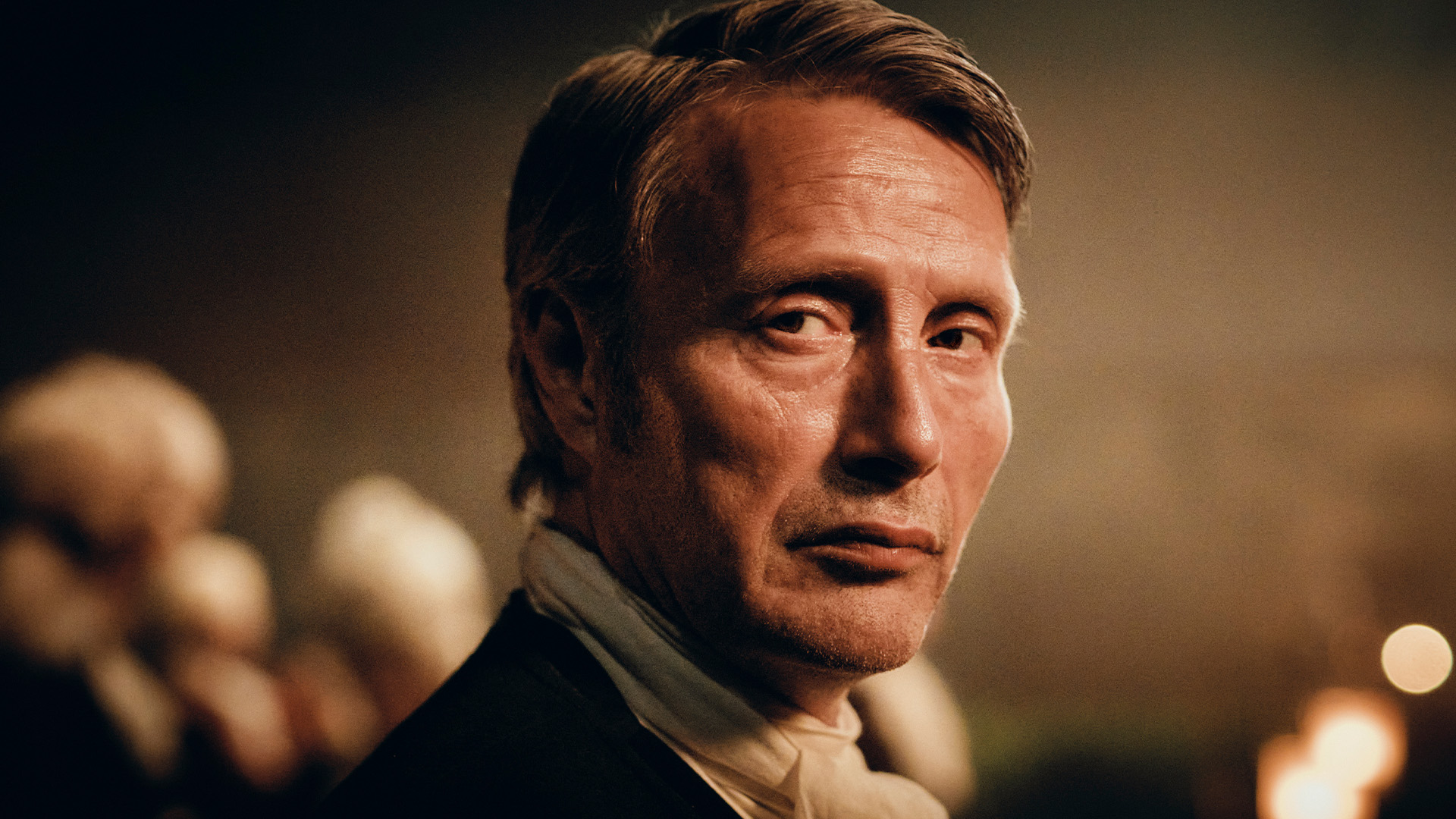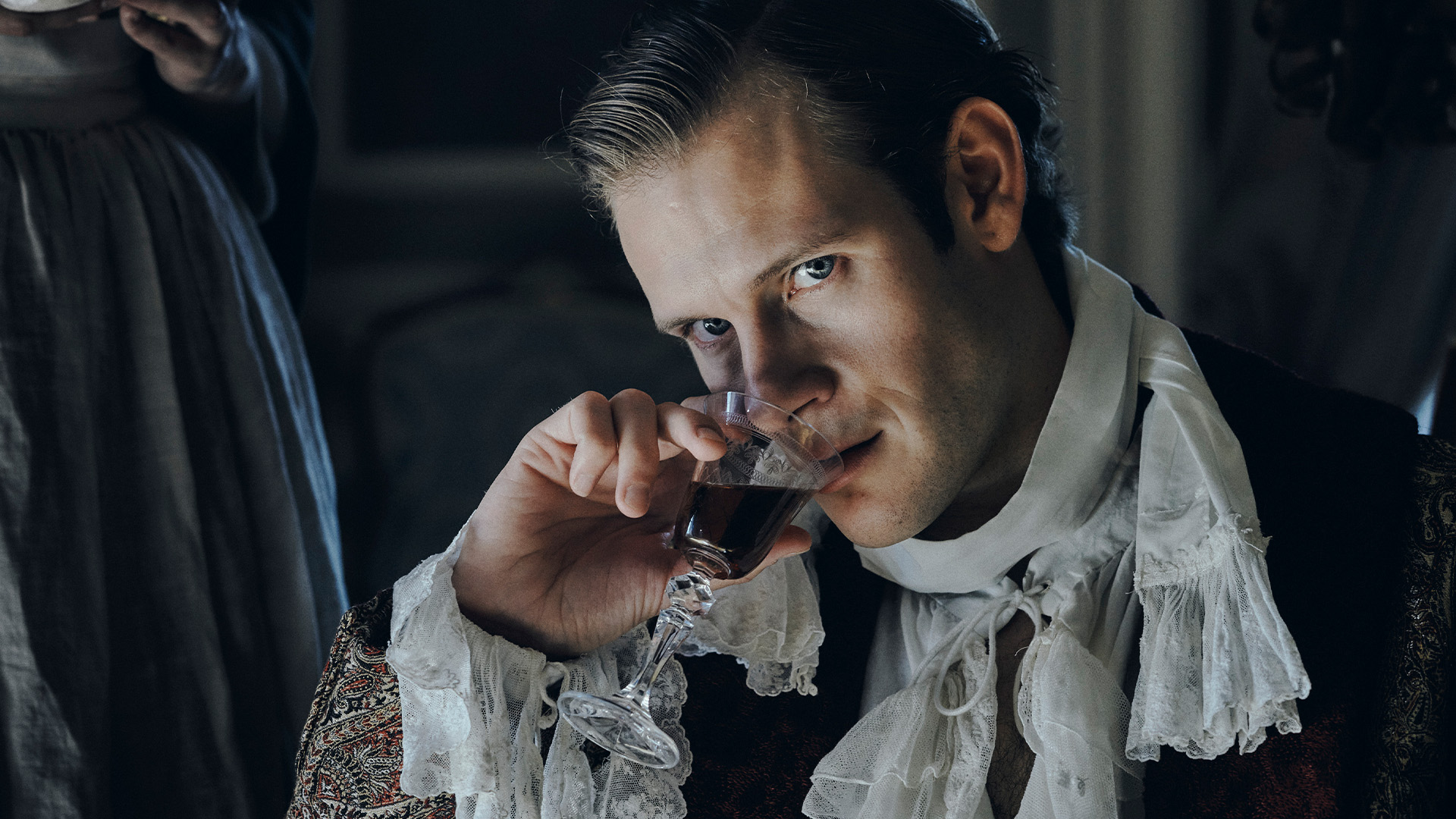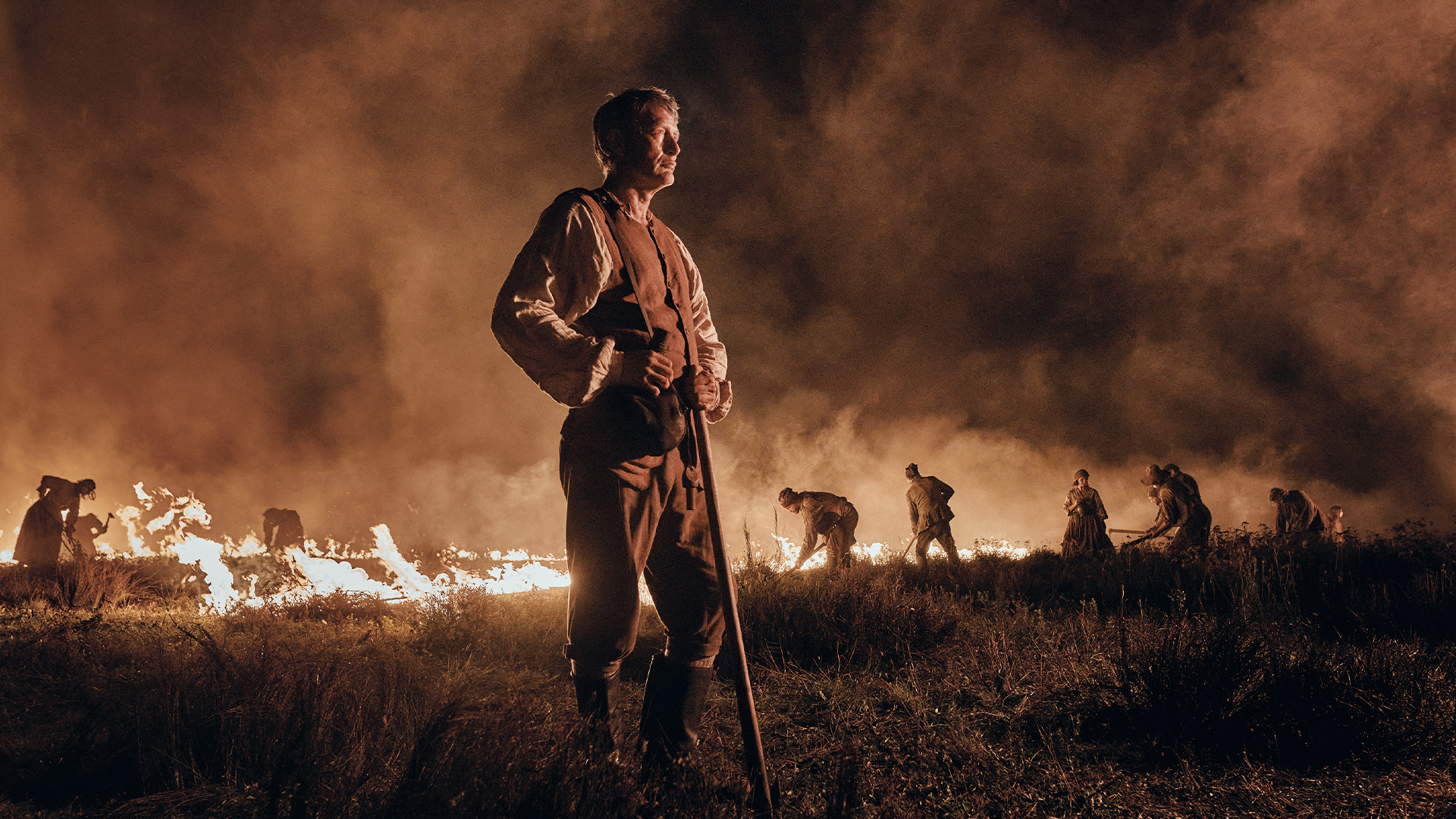It may star Mads Mikkelsen, but The Promised Land is a different kind of royal affair

The director of A Royal Affair helms a stoic western, one that sees Mads Mikkelsen try to tame the inhospitable 18th century Danish moorlands. The Promised Land may share a star, country, and (roughly) a time period, but is a very different beast, says Steve Newall.
If you’re the sort of person who thinks colonialism gets a bad rap, The Promised Land might sound like the film for you… But this tale of taming barren land for the 18th century Royal Danish Court is more stoic western than a justification of exploitation. Indeed, it makes pointed observations about privilege, power, injustice and cruelty.
Reteaming with director Nikolaj Arcel—with whom he made 2012’s excellent period drama A Royal Affair (like this film, an Oscar nominee)—Mads Mikkelsen is at his gruffest here. He plays a former German officer who’s retired after a quarter century with nothing much to show for himself. Captain Ludvig Kahlen’s solution? Convince the advisers of Denmark’s perma-drunk and absent King Frederick V that Kahlen is the man to succeed where everyone else has failed—to make something of Denmark’s inhospitable Jutland moorland.
Frederick V had invited Germans to cultivate this remote and unforgiving part of the country, an opportunity seized by Kahlen to pull himself up by the bootstraps. His proposition to the Court: create a functioning farming settlement and, in return, obtain a noble title. But as Kahlen will discover, there are plenty of reasons why no one has been able to succeed before him, and he goes on to battle the cold, wind, soil, and 18th century horticultural limitations.
Which would be plenty, especially given Kahlen is depicted as a stubborn grump who doesn’t work well with others, and in turn finds himself doing the lion’s share of backbreaking work himself. There’s probably a film of sorts that is solely focused on a pretty unlikable man’s labour—luckily for our entertainment (if not the film’s other characters) The Promised Land has a vile antagonist to match and exceed the challenges Kahlen faces from the environment.
Magistrate and landowner Frederik De Schinkel (the OTT at times Simon Bennebjerg) has reaped the benefits of Jutland’s unforgiving climes. Perhaps not in a lucrative way, but with no local representatives of the Crown, he’s a bully who rules with an iron fist and sees the moorland as his property—mistreating slaves, torturing them for sport, and sending death squads out into the countryside to drive out would-be settlers.

Here’s where the film displays its most overt western characteristics. The audience is soon invested in seeing De Schinkel’s downfall, and his leering ego is a great foil for Mikkelsen’s taciturn nature. Not that The Promised Land’s main character is the most likeable sort. Mikkelsen is excellently infuriating to watch as he gets in his own way through pride and obstinance, but our sympathies aren’t with him so much as he reluctantly bonds with—and subsequently disappoints—the runaway slave (Raised by Wolves’ Amanda Collin) and Romani traveller child (Melina Hagberg) with whom he forms a makeshift family.
You could be forgiven for thinking the film’s original Danish title Bastarden (The Bastard) referred to Kahlen’s behaviour as much as his parentage. Though as Nikolaj Arcel explained, US distributors felt the title was was a little negative. “In Denmark, ‘the bastard’ only means an illegitimate son, it doesn’t mean ‘a dick’” he shared at a post-film Q&A for Collider.

The romantic Mikkelsen of Arcel’s A Royal Affair is not to be found here, nor are the trappings of royalty—save as a contrast to Kahlen’s cold and spartan existence or fuel for his aspirations. While The Promised Land may share a star, geography, and (roughly) a time period, it’s a very different beast—but despite sounding grim to the point of being unenjoyable, that’s not quite the case. Blessed with excellent performances, particularly Mikkelsen’s ability to both infuriate and in turn radiate fury by seemingly doing very little, it’s a contrast to their prior film and an interesting setting for some familiar frontier storytelling beats.




















